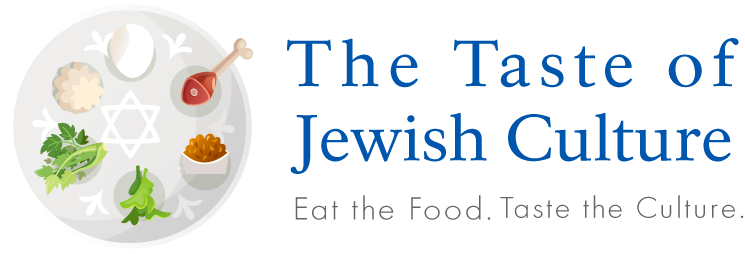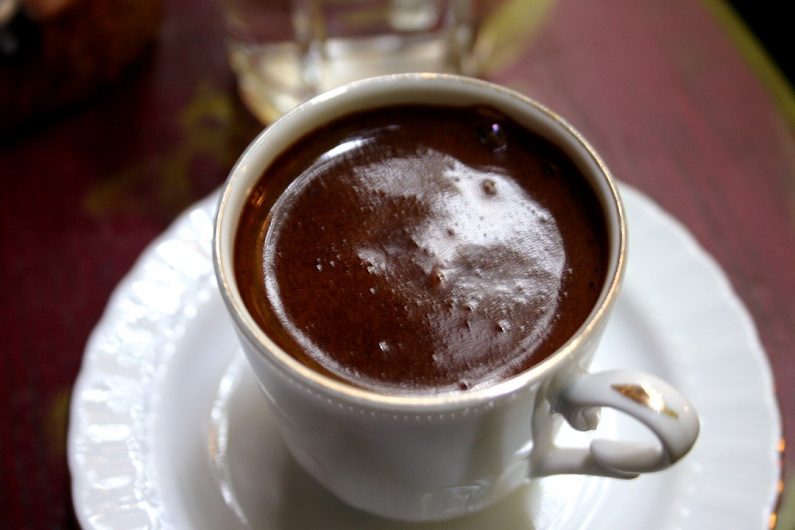I had a lot of fun writing my latest article for The Nosher, all about Israeli culture and history, as seen via its coffee! In it, I answer such questions as:
- Why can you get espresso at any Israeli gas station?
- Why do some Israelis still order instant coffee there anyway?
- Why do Israelis call instant coffee a “miracle?”
- How was our “espresso generation” actually misnamed?
- How do you make an upside-down coffee, and what does that say about Israeli culture?
As often happens, my article has been edited down for length, so I want to include a couple of bonus bits here that did not make the final cut, but which some of you might enjoy!
On Israeli coffee culture and international politics
In 2010, the Mavi Marmara incident created tensions between Israel and Turkey. In its wake, many started calling their preferred drink “black coffee,” or Israeli coffee, instead of Turkish coffee. Much like the Freedom Fries movement in the U.S. after France didn’t support the U.S. invasion of Iraq, this was a way of Israelis excising Turkey from their drink. Remarkably, Turkish coffee was also renamed in Greece, Cyprus and Armenia. Clearly, Israel isn’t the only country with whom Turkey doesn’t get along.
On Starbucks’ failure here
As someone who strongly dislikes their coffee, I’m proud of that fact. Maybe Israelis really do know better, at least when it comes to coffee!
Beyond that, enjoy this lighthearted romp through the many tidbits that connect our coffee culture to our culture overall!







Ilana
Great article! One thing I’m left wondering about… when I was last in Israel (early 2020, pre-pandemic) I noticed that what we usually call Turkish coffee in North America is typically called “Arabic coffee” on menus. I didn’t make a real study of this or anything – I was travelling on a budget and had laryngitis so I was drinking a lot of herbal tea and, ironically, instant – but I did notice it was on menus as “kafe aravi”, not “kafe turki”. Yet the Wikipedia page for the drink is very much “kafe turki”: https://he.wikipedia.org/wiki/%D7%A7%D7%A4%D7%94_%D7%98%D7%95%D7%A8%D7%A7%D7%99
Maybe I was just in restaurants that, by chance, used this alternative nomenclature?
FunJoel
Hey there, Ilana! Thanks for reading, and for the question. So…
Firstly, there is (or at least WAS, as I understand it) a slight difference between Arab and Turkish coffee. The older coffee, as started being drunk in Yemen, was a much coarser grind, and wasn’t frothed via constant reboiling as Turkish was. So while the coffee you were seeing in the restaurants was prob ground like Turkish, I doubt it was reboiled multiple times like the classic Turkish way, and ths might technically have been closer to Arab style.
Second, it might’ve been a throwback to the pre-state (and pre-German immigration) days, when most coffee in Israel was being drunk at Arab-run and -style coffeehouses.
Most likely though, a political statement was at play. Might have been a reaction to the anti-Turkish sentiment, as I wrote in the post above. More likely, however, it was a way of expressing a reaction to the claims (which I dispute) of cultural appropriation. The same way some places make a point of calling chopped tomatoes and cucumbers an “Arab Salad” since so many call it “Israeli Salad.” The truth is, that term is more often heard out of Israel. Here we usually just call it “salad” or “salat katzutz” (chopped salad). My guess (especially if you saw it in Tel Aviv) is that calling it Arab coffee showed a similar sentiment.
Hope that helps and hope to hear from you again! 🙂
Ilana
Hi Joel, thanks for your answer! At one place it particular, I remember it was a Palestinian/Arab-Israeli restaurant in Haifa, so I wasn’t sure as to whether it was political and if so, how. I also saw the chopped salad on a menu (also in Haifa) as “Arabic-Jewish salad”, which was a new one! Interesting all around.
FunJoel
Yeah, I’ve never seen that one either. Funny.
In my opinion, the world will be a better place when people stop thinking there is such a thing as “ownership” when it comes to food.
Warren Burstein
I once had a coupon for a free coffee. Asked for an espresso, cashier says, sorry, this only is good for a hafuch (the coupon just said “coffee”). No problem, I say, start to make a hafuch and stop before adding milk. Cashier asks barista if that’s possible, barista says, sure, one espresso.
FunJoel
Ha ha! You’re lucky, Warren! I went into a meat place and didn’t want bread, so I asked for a sandwich without the bread. The guy insisted he’d have to charge me more, like a full plate. I said, “I don’t want anything extra. Exactly the same ingredients as go into the sandwich, just not on bread. You’ll actually SAVE money.” The guy still refused. I walked out and have never gone back there!
Daniel Rosehill
Joeloosh!
Your info about the origins of coffee above are on point (and the prep method used among Bedouins today and oddly enough in Saudi Arabic bear the closest resemblance to the first cups drunk in Yemen – plus Yemenite and Ethiopian coffee).
Re: Turkish vs. Arabic coffee the difference is much more simple. Arabic coffee is usually just Turkish coffee with cardamom added. In Turkey itself, its a far less prevalent addition.
Allen
FunJoel
“Yeah, I’ve never seen that one either. Funny.
In my opinion, the world will be a better place when people stop thinking there is such a thing as “ownership” when it comes to food.”
No food ownership but you can’t copy Lebanese hummus recipe to the T and call it Israeli. What ingredient made it Israelis? example: Lebanese kefta is different from Iraqi kefta and from Egyptian kefta because Lebanese add parsley and onion to the meat. in most cases, spices is what gives any food it’s identity. If you going to introduce to the world japanese Biryani, please tell us what makes it japanese. No food ownership but can you open restaurant and serve American shawarma? There is nothing wrong with Israeli restaurant serving hummus but don’t called it Israeli hummus. Nothing wrong with Mexican restaurant serving Biryani with all the indian spices but they can’t call it Mexcian Biryani. If you substitute some of the indian spices with Mexican’s then it will be called Mexicans infused Biryani. I live in Chicago and many Mexican restaurants serve Tacos Al Pastor, a Mexican style shawarma. Made with pork meat and mexcian spices made it mexcian shawarma. again, don’t copy someone else’s recipe to the T and call it your own.